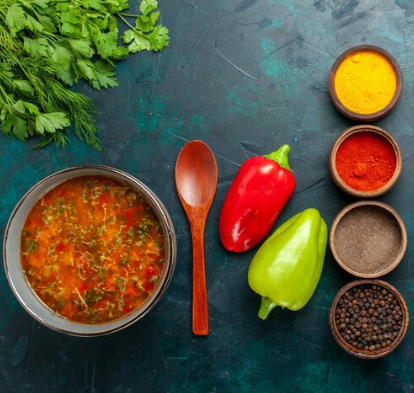Curry Grub
- Carl Boniface

- 17 de dez. de 2024
- 2 min de leitura
Fast food stores serve quick made tasty food. If you think of hamburgers and chips or other simple junk food, you’ll remember McDonalds, Burger King, Wendy’s, Subways, Domino’s Pizza, and dozens more that line the streets around the world.

One dish English people love today is curry. Curry originates from India.
Following World War II, curry became popular in Britain owing to the large number of immigrants from South Asia.
Curry has become an integral part of British cuisine, so much so that, one dish invented in Britain is chicken tikka masala, and since the late 1990s it has been referred to as "a true British national dish".
Chicken tikka masala may derive from butter chicken, a popular dish in the northern Indian subcontinent. The Multicultural Handbook of Food, Nutrition and Dietetics credits its creation to Bangladeshi migrant chefs in Britain in the 1960s.
When I became a young man in the 1980s curry restaurants were all the rage and everywhere. The good thing about curry dishes are their awesome ingredients.

Curries usually use spices like cumin, coriander, garam masala, turmeric, fenugreek, chili powder, cardamom, mustard seeds, and several others. The spices are becoming more common, and if you can't find them at a local Indian shop (your best bet for lots of cheap spices), you can probably find them online.
Good curries include many vegetables like tomatoes, carrots, green, red, and yellow peppers, ginger, onions, garlic, sultanas, raisins, sweet potatoes, etc.
Basically, experimenting with different ingredients is the spice of life until you hit the right combination that suits your palate if you are making at home.
Take care!
Prof. Carl Boniface
P.S. Take Away (seen in the picture) means food to retrieve. There isn’t a sit down to eat in the store (shop), nor do they deliver.
Vocabulary builder:
Grub (n) = food, nosh, sustenance, feed, nourishment. It can also mean Larva, maggot, caterpillar, creepy-crawly
Dishes (n) = plates, cups, saucers, tableware, bowls, dishware
Awesome (adj) = overwhelming, grand, breathtaking, splendid, tremendous, amazing
The spice of life (idiom) = is said to mean that doing and seeing a lot of different things makes life more enjoyable and interesting. It is important to vary the training program so that boredom is avoided. This phrase comes from William Cowper's poem, “The Task” (1785): “Variety is the very spice of life, that gives it all its flavor.”
Palate (n) = appreciation, taste, appetite, enjoyment, liking, (ant) dislike.
It means the roof of your mouth and your sense of taste and preferences. This is not to be confused with a palette—the board on which an artist mixes paint. Finally, a pallet is a large, wooden platform used to move things, typically for commercial purposes.




Comments